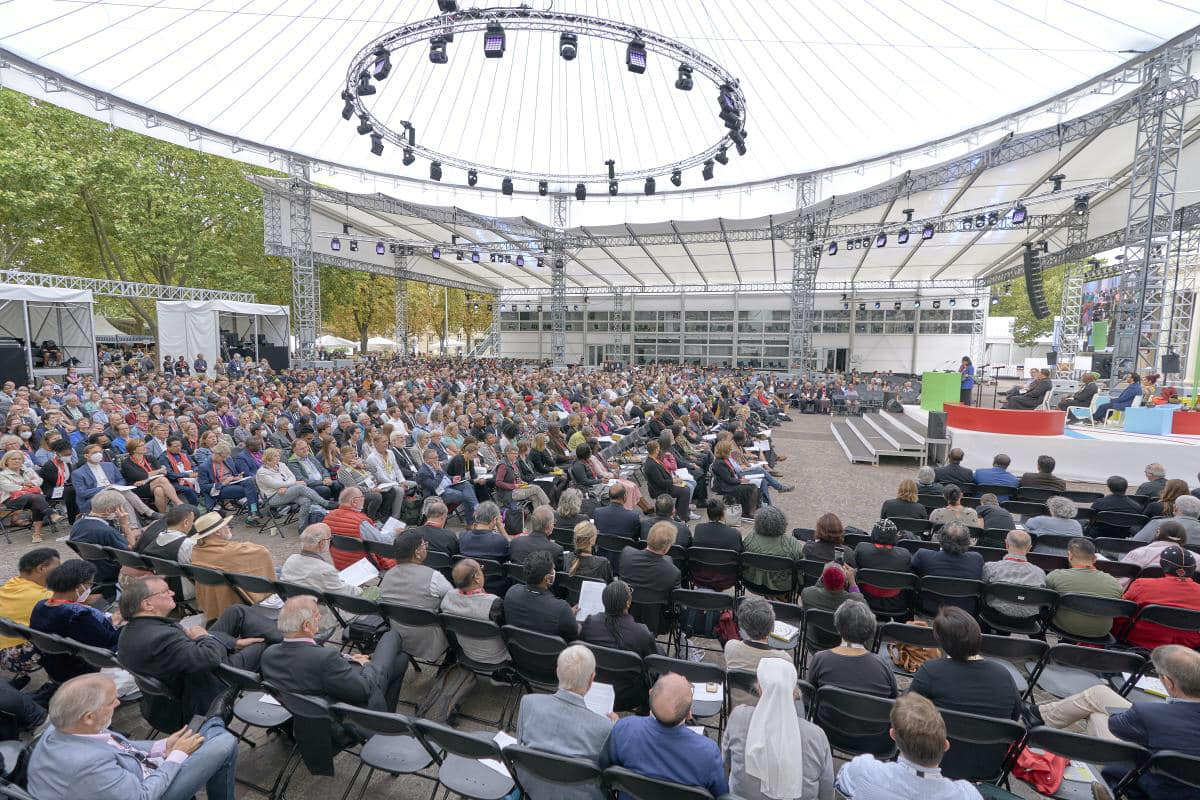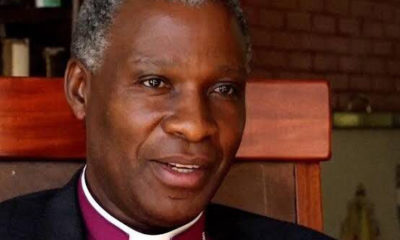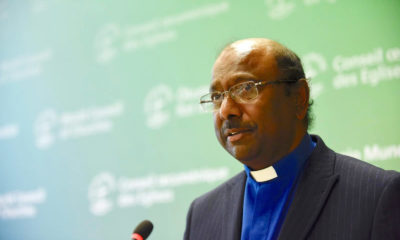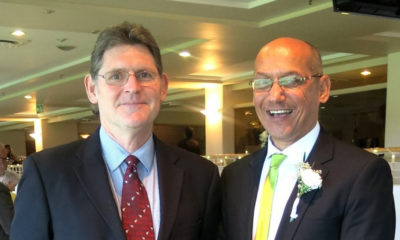
World

World Council of Churches refrains from labelling Israel an apartheid state
The World Council of Churches (WCC), which has a long history of systemic bias against Israel, stopped short of labelling the Jewish homeland an “apartheid state” at its general assembly last week.
The decision came as the WCC wrapped up its nine-day event last Thursday, 8 September, in Karlsruhe, Germany.
German President Frank-Walter Steinmeier, who was concerned that the delegates would take Israel bashing too far, issued a warning about the dangers of antisemitism.
“It’s one of the major current tasks of the Christian churches around the world to fight back against antisemitism,” he told the opening session, according to The Algemeiner.
“We must be aware that antisemitism can take many forms,” Steinmeier said, “But it always remains a hate ideology with a history of extermination.”
One of the pressing items on the agenda was to consider a controversial statement by the WCC’s public issues committee titled: “Seeking justice and peace for all in the Middle East”.
It prompted vigorous discussion amongst global delegates about whether the assembly should name the situation in Israel and Palestine “apartheid”. Some churches pushed hard for a resolution at the assembly that would define Israel as an apartheid state. Some churches, however, were against this. In the end, no consensus was reached. The WCC assembly is the highest governing body of the WCC.
After much debate, the WCC concluded, “Within this assembly, some churches and delegates strongly support the utilisation of this term [apartheid] as accurately describing the reality of the people in Palestine/Israel and the position under international law, while others find it inappropriate, unhelpful, and painful. We’re not of one mind on this matter.” It said it must “continue to struggle with this issue”.
Pamela Ngubane, the general manager of the South African Friends of Israel (SAFI), told the SA Jewish Report, “SAFI notes the rejection of the apartheid analogy as a characterisation of Israel in its dealing with the Palestinians.”
She said the organisation hoped that it marked the “beginning of a real debate on the nature of the conflict between the Palestinians and Israel”.
“We congratulate those members of the general assembly who pushed back against the agenda of an organised anti-Israel church lobby, some of which unfortunately included the South Africa delegation, which seeks to label Israel an apartheid state.”
“Minds must now turn to the nuances in this situation, with an aim to understand the conflict,” Ngubane said.
“This will enable the WCC to do what’s necessary to foster normalisation and peace between the two sides as opposed to the usual dismissal of Israel’s security concerns. These concerns include the real and present threat to Israel’s national security by extremist aggression emanating from Iran, the West Bank, and Gaza.”
Ngubane said she hoped that the next sitting of the WCC general assembly would result in “this powerful body using its global influence to make a case for peaceful coexistence between Israel and the Palestinians”.
SAFI is a grassroots organisation for South Africans who support Israel.
Reverend Rowan Rennie of the Bethany Fellowship Church, an independent Wesleyan group, told the SA Jewish Report that although the WCC didn’t use the word “apartheid” in its statement, it implied it.
“It’s insinuated,” he said, “and real Christians see through this pretence.”
“The WCC is a political institution, not a Christian institution. It’s there to interfere in politics, to push certain agendas as it makes alliances with political parties and governments. The majority of Christians in South Africa absolutely support Israel and will never stand against Israel. I pray the Jewish people can be comforted by the fact that true Christians stand in solidarity with them and Israel.”
The WCC, known for its anti-Israel stance, brings together churches, denominations, and church fellowships in about 120 countries and territories throughout the world, reportedly representing millions of Christians.
The WCC statement affirmed the “rightful place of the state of Israel in the community of nations and recognised its legitimate security needs” but it also pointed to reports by human rights organisations that described the policies and actions of Israel as amounting to apartheid. Without explicitly accusing the Jewish state of apartheid, it was harshly critical.
Reverend Rennie remains cautious of the WCC’s agenda, saying there were a number of troubling issues in its statement.
“It refers to Christians living in this area in a bid to pull on Christian heart strings. The conflict between Israel and Palestine has nothing to do with Christians. This is manipulation. The WCC also makes out that it’s all up to Israel to bring about peace. Israel’s enemies don’t seek to live in peace with Israel, and this is what’s forcing Israel to defend herself. This isn’t a matter of apartheid,” he said.
Earlier this year, Chief Rabbi Dr Warren Goldstein called on South African Reverend Professor Dr Jerry Pillay to “retract statements accusing Israel of apartheid and calling for a boycott of the Jewish state” after Pillay was elected general secretary of the WCC on 17 June 2022.
He called on Pillay to use his new position to break with the WCC’s disturbing anti-Israel history and “usher in a new era”.










